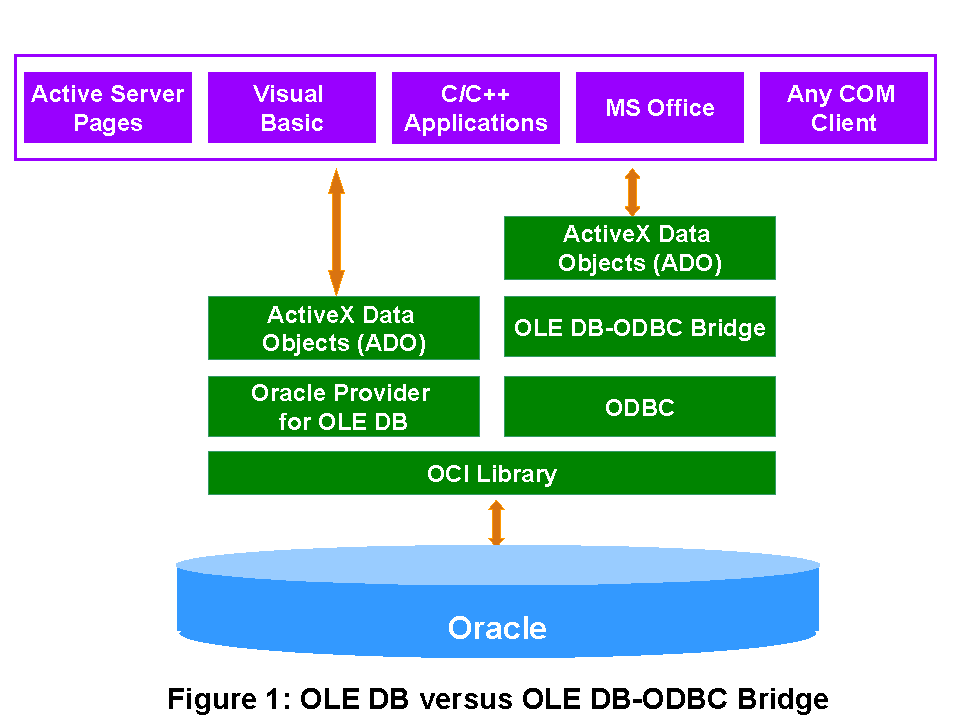Key Variables to Search For in a Database Provider for Startups
Secret Features to Look for When Selecting a Database Company
Picking a database provider is a vital decision that can substantially impact your organization's operations and data administration strategy. Among the essential functions to take into consideration are scalability options, which make sure that your system can adjust to expanding demands. Safety actions, performance metrics, and client assistance additionally play pivotal functions in this analysis process. As you consider these variables, it becomes obvious that the selection is not just about performance however additionally about lining up with your lasting vision. What various other factors to consider might influence this essential decision?
Scalability Options
When selecting a database service provider, comprehending scalability choices is important to making certain that the selected remedy can suit future development. Scalability refers to the ability of a database system to expand its ability and efficiency in reaction to enhanced demand. There are 2 key kinds of scalability: vertical and horizontal.
Vertical scalability, or "scaling up," involves boosting a solitary server's sources, such as CPU, RAM, or storage space. This technique can be simple and affordable for smaller applications yet may reach a restriction where additionally upgrades are as well costly or unwise.
Horizontal scalability, or "scaling out," entails adding extra web servers to distribute the lots. This method permits greater adaptability and can fit significant rises in data quantity and user website traffic (database provider). It is especially useful for cloud-based database services that can dynamically allot sources based upon demand

Security Actions

When examining safety and security actions, think about the execution of file encryption protocols (database provider). Data-at-rest and data-in-transit security are vital to make sure that delicate information stays protected, also in case of a safety and security breach. In addition, look for carriers that supply strong authentication devices, such as multi-factor verification (MFA), to better boost access control
Routine safety and security audits and compliance with industry standards, such as GDPR or HIPAA, are a measure of a service provider's dedication to data protection. In addition, inquire concerning their case feedback plan; a durable strategy can minimize the impact of any possible safety incident.
Performance Metrics
Assessing performance metrics is crucial for companies to guarantee that their chosen data source company fulfills operational requirements. Key efficiency metrics check these guys out include reaction throughput, scalability, and time, which jointly identify the effectiveness of data source operations under varying tons.
Action time is essential, as it shows exactly how promptly the database can refine inquiries and return outcomes. Organizations needs to seek metrics that suggest ordinary action times during optimal and off-peak hours. Throughput, usually determined in deals per second (TPS), gives understanding into the data source's ability to deal with high volumes of demands without efficiency destruction.
Scalability assesses the database's capacity to grow with the organization's requirements. A robust database carrier should demonstrate horizontal and vertical scaling capabilities, permitting seamless modifications as demands vary. Furthermore, comprehending latency, especially in dispersed systems, can aid companies review the responsiveness of the database throughout various geographical locations.
Client Assistance
Trusted consumer assistance is a Recommended Site foundation of effective data source monitoring, supplying organizations with the assistance required to maximize and settle problems performance. When picking a data source company, evaluating the degree of customer support they supply is crucial. A robust assistance system ought to consist of several channels of interaction, such as phone, email, and live conversation, guaranteeing that users can access assistance whenever they need it.
In addition, responsive assistance groups that are offered 24/7 greatly improve the reliability of the data source service. Trigger response times and efficient resolution of issues can dramatically decrease downtime and increase overall performance. It is likewise useful to think about the schedule of devoted assistance personnel, who can supply tailored help based upon an organization's certain requirements.
.png)
Prices Framework
When thinking about a data source company, the pricing structure is a crucial element that can significantly affect an organization's spending plan and overall method. A adaptable and transparent prices model is vital for straightening the database sets you back with organization requirements - database provider. Organizations needs to evaluate whether the rates is based on usage, per customer, or a flat rate, as each version can generate different monetary effects over time
It is very important to assess any extra expenses linked with the company's solutions, such as information storage charges, purchase expenses, and support charges. Some providers may use tiered rates, allowing scalability as the More about the author organization expands, while others might enforce stringent limits that can become costly as data demands enhance.
Additionally, companies must consider the long-term value of the data source solution. While lower initial prices can be appealing, they might not make up future upgrades, maintenance costs, or assimilation prices. Performing a comprehensive cost-benefit analysis will help identify the most suitable rates framework that stabilizes assistance, scalability, and performance, eventually making sure that the picked data source carrier lines up with the organization's financial and operational objectives.
Conclusion
In conclusion, choosing a data source company demands cautious factor to consider of different essential features. Reviewing performance metrics allows the recognition of efficient databases, and obtainable customer support improves the total user experience.
Choosing a data source provider is a vital choice that can considerably affect your company's data and operations monitoring approach.When selecting a database company, recognizing scalability alternatives is essential to making sure that the selected option can suit future development. When picking a database service provider, assessing the level of client assistance they use is necessary.When taking into consideration a data source provider, the pricing structure is a pivotal factor that can significantly impact an organization's budget and overall strategy. Conducting a comprehensive cost-benefit analysis will certainly aid recognize the most ideal prices structure that balances assistance, scalability, and efficiency, eventually making sure that the selected database carrier straightens with the company's functional and monetary objectives.